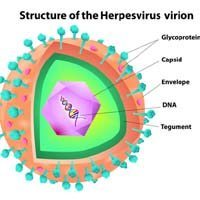Age and Smoking Less Important Than Other Factors for Mesothelioma Outcomes
 A newly published study suggests that a mesothelioma patient’s age and smoking history is less important to prognosis than certain biomarkers or what treatment they choose.
A newly published study suggests that a mesothelioma patient’s age and smoking history is less important to prognosis than certain biomarkers or what treatment they choose.
The study comes from scientists at the National Institute of Respiratory Diseases in Mexico City.
They performed a retrospective analysis of 136 patients with pleural mesothelioma. The goal was to see which factors played the biggest role in outcomes. Age and smoking were among seven factors evaluated. It turns out they were not the most important ones.
Who Gets Pleural Mesothelioma?
Malignant mesothelioma is the cancer most closely associated with asbestos exposure. Most people who get it have lived or worked around asbestos. Mesothelioma can take decades to develop. Most patients are over 65.
Not everyone who is exposed to asbestos gets mesothelioma. And not every case of mesothelioma progresses in the same way. Some studies suggest older age and smoking increase the chance of a poor mesothelioma outcome.
Other prognostic factors include gender, histological subtype, clinical stage, and whether a person has other health problems. Which chemotherapy agents a person receives and whether they have other treatments like radiotherapy or surgery also play a role in outcomes.
The Prognostic Role of Age and Smoking
The new study focused on 136 mesothelioma patients, including 84 men and 52 women. Median progression free survival (PFS) was nine months. Median overall survival (OS) was one year. It may seem obvious that older age and smoking history would lead to worse mesothelioma outcomes. But the research found that other factors played a bigger role.
“The results indicated that the most determining prognostic factors for OS and PFS were cell differentiation measured by immunohistochemical biomarkers [and] the treatment chosen,” writes lead study author Jordi Guzman-Casta.
Immunohistochemistry is the process of staining biopsied cells to check for the presence or absence of certain components, such as proteins. Components that indicate disease are biomarkers. The study showed these biomarkers are also more important in mesothelioma treatment results than age or smoking.
When it comes to monitoring a patient’s response to mesothelioma treatment, the team found that RECIST was the best tool. RECIST stands for Response Evaluation Criteria in Solid Tumours. It is a set of tools for assessing a tumor’s size and progression.
If RECIST shows a person is responding to treatment, their age and smoking history may not matter as much. Chemotherapy is the main first-line treatment for mesothelioma. In healthier people, it is usually combined with surgery and possibly radiation.
The FDA has also approved a combination of the immunotherapy drugs Yervoy and Opdivo for first-line mesothelioma treatment.
Source:
Guzman-Costa, J, et al, “Prognostic factors for progression-free and overall survival in malignant pleural mesothelioma”, March 4, 2021, Thoracic Cancer, Online ahead of print, https://onlinelibrary.wiley.com/doi/10.1111/1759-7714.13814





